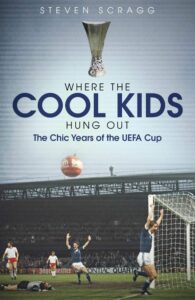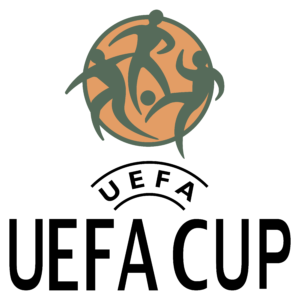Book Review: We’re not Leeds, We ARE Leeds by Dave Rowson
 From the mid-1960s to the mid-1970s, European football was a regular attraction down at Elland Road, as Leeds United won the Fairs Cup twice (also runners-up once) but included controversial losses in the finals of the European Cup Winners Cup (1972/73) and European Cup (1974/75). Apart from an appearance in the UEFA Cup in 1978/80, the Elland Road faithful had to wait until 1992 before European football became a regular fixture down in LS11 once more.
From the mid-1960s to the mid-1970s, European football was a regular attraction down at Elland Road, as Leeds United won the Fairs Cup twice (also runners-up once) but included controversial losses in the finals of the European Cup Winners Cup (1972/73) and European Cup (1974/75). Apart from an appearance in the UEFA Cup in 1978/80, the Elland Road faithful had to wait until 1992 before European football became a regular fixture down in LS11 once more.
Author of We’re not Leeds, We ARE Leeds, Dave Rowson had gone to the infamous 1975 European Cup Final against Bayern Munich in Paris with his father, as a teenager, so beginning his connection with trips abroad to follow his team, and which Dave was to pick up again in 1992/93.
We’re not Leeds, We ARE Leeds, charts a number of trips undertaken between 1992 in Stuttgart and concluding in 2002 in Florence, where the UEFA Cup tie against Hapoel Tel Aviv was played. Now if as a reader you are expecting an analysis of the games or indeed details about the tourist sites of the various locations across Europe for the fixtures, then you will be disappointed.
Instead this is the tale focusing on the tales and travails of members of the Leeds United Supporters Club, Harrogate and District Branch, (of which the author was a founding member), as they follow their team in a European A to Z from Anderlecht to Zurich. Given this, the book provides a useful background on the history of the branch and a number of its members for reference, who loom large in the stories that unfold.
These trips abroad were not the official trips organised by the Elland Road club, but instead were organised by Dave Rowson, gaining the nickname ‘Rouse Tours’, with those going wanting more time before and after the fixtures in the various locations. This time was usually spent finding the cheapest accommodation, bars and nightlife in general (and of course getting to the games – most of the time!), which leads to, as can be imagined, a variety of mishaps and at times ingenious and not so genius ideas.
Yes, the book contains tales of alcohol fuelled episodes, which in its most extreme case led to the author being in the wrong place at the wrong time in Germany, but underpinning it is also a story of friendship, loyalty and what it means to follow your team. Indeed, the title of the book We’re not Leeds, We ARE Leeds, was borne out of the 1998 trip to Maritimo, where, as ‘Rouse’ informs readers, “it was a statement that summed up how we all felt about following Leeds. How it truly felt to be a Leeds fan amongst the Leeds family at some far-flung away game in Europe.”
This helps to explain one of the two reasons the book was published. Firstly, with Marcelo Bielsa getting Leeds back into the Premier League, fans hope that the next step will be seeing European football return under the lights at Elland Road and therefore the book is in part, “for those who have not had the pleasure of following Leeds in what they have missed and what could await them in future.” The second is that a donation will be made from book sales to Alzheimer’s Research UK as part of a campaign to raise funds and awareness of Alzheimer’s and in particular the plight of ex-QPR and England international Stan Bowles. More details can be found on the Facebook page @StanBowlesHarrogateLUSC
You can buy the book via the following link: DB Publishing
(DB Publishing. April 2021. Paperback 192 pages)
 Back in September 2019,
Back in September 2019,  As with the Cup Winners’ Cup, changes to the UEFA Cup came about through the breakup of the former Communist bloc, necessitating the introduction of a Preliminary Round to the competition. With the two-legged Finals gone in 1996/97 the first steps of change arrived, as the Final morphed into a one-off game at a neutral venue. Further transformation came with the Cup Winners’ Cup demise at the end of 1998/99, and the Groups Stages established in the competition in 2004/05, with the ‘rebrand’ complete in 2009/10. Part of this includes those clubs failing to qualify for the Champions League knock-out stages dropping into the Europa League, which as Scragg acknowledges gives the impression of it being a second-rate competition. As he so brilliantly puts it, “essentially the Europa League is the MK Dons of European club football tournaments. There is a sad sense of franchise about it.”
As with the Cup Winners’ Cup, changes to the UEFA Cup came about through the breakup of the former Communist bloc, necessitating the introduction of a Preliminary Round to the competition. With the two-legged Finals gone in 1996/97 the first steps of change arrived, as the Final morphed into a one-off game at a neutral venue. Further transformation came with the Cup Winners’ Cup demise at the end of 1998/99, and the Groups Stages established in the competition in 2004/05, with the ‘rebrand’ complete in 2009/10. Part of this includes those clubs failing to qualify for the Champions League knock-out stages dropping into the Europa League, which as Scragg acknowledges gives the impression of it being a second-rate competition. As he so brilliantly puts it, “essentially the Europa League is the MK Dons of European club football tournaments. There is a sad sense of franchise about it.” The European Cup Winners’ Cup (ECWC) competition came into being in the 1960/61 season, and as its title suggests qualification was attained by being the winners of a countries domestic cup. Despite its creation after the first European Cup competition in 1955/56 and the Inter-Cities Fairs Cup which also began in 1955 (before it morphed into the UEFA Cup in 1971/72) and therefore being the youngest of the three competitions, it was though seen as the next most prominent after the European Cup. It continued until the 1998/99 season with the final playing of the tournament between SS Lazio and RCD Mallorca at Villa Park, home of Aston Villa, the last of the 39 Finals.
The European Cup Winners’ Cup (ECWC) competition came into being in the 1960/61 season, and as its title suggests qualification was attained by being the winners of a countries domestic cup. Despite its creation after the first European Cup competition in 1955/56 and the Inter-Cities Fairs Cup which also began in 1955 (before it morphed into the UEFA Cup in 1971/72) and therefore being the youngest of the three competitions, it was though seen as the next most prominent after the European Cup. It continued until the 1998/99 season with the final playing of the tournament between SS Lazio and RCD Mallorca at Villa Park, home of Aston Villa, the last of the 39 Finals.